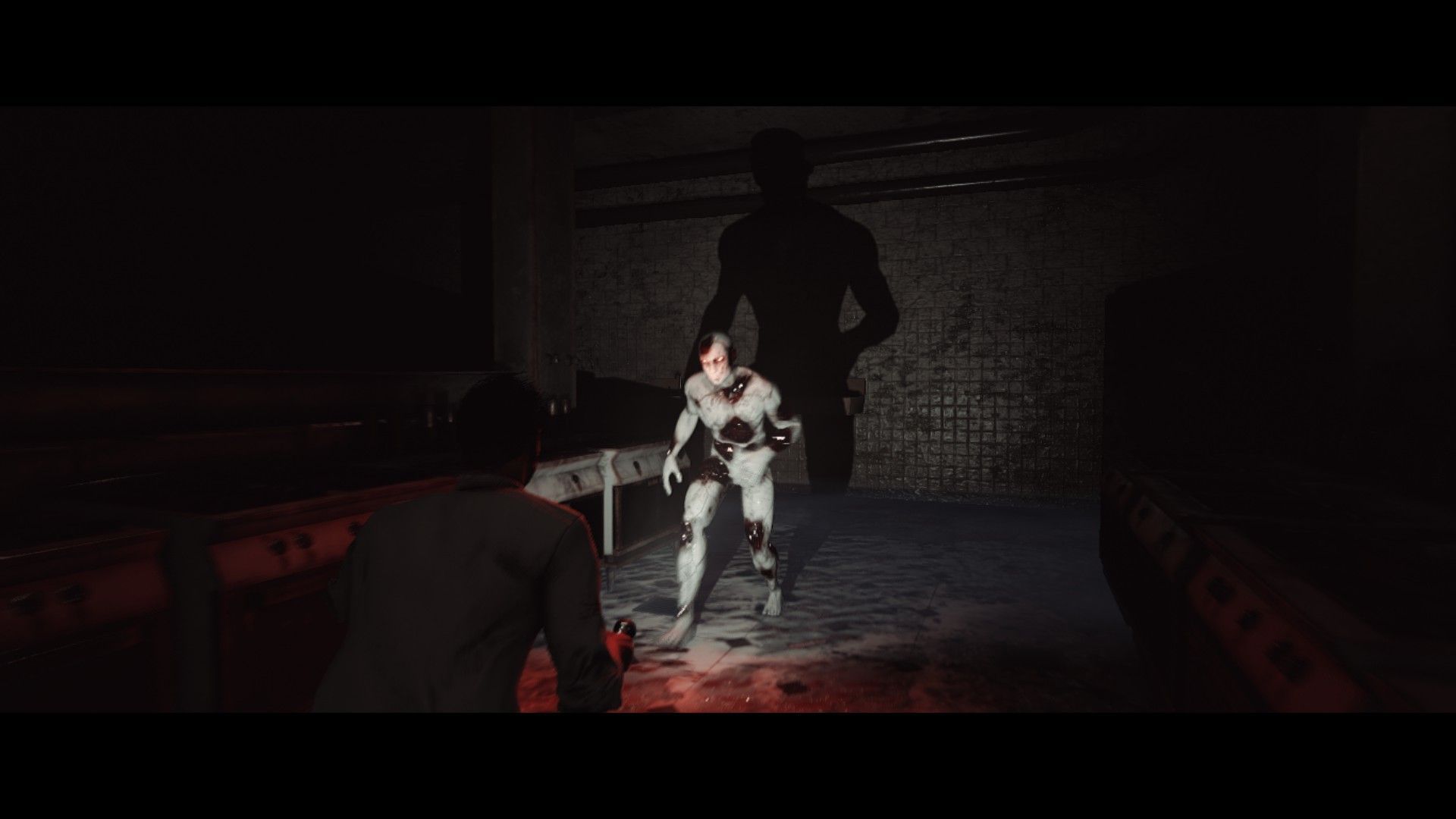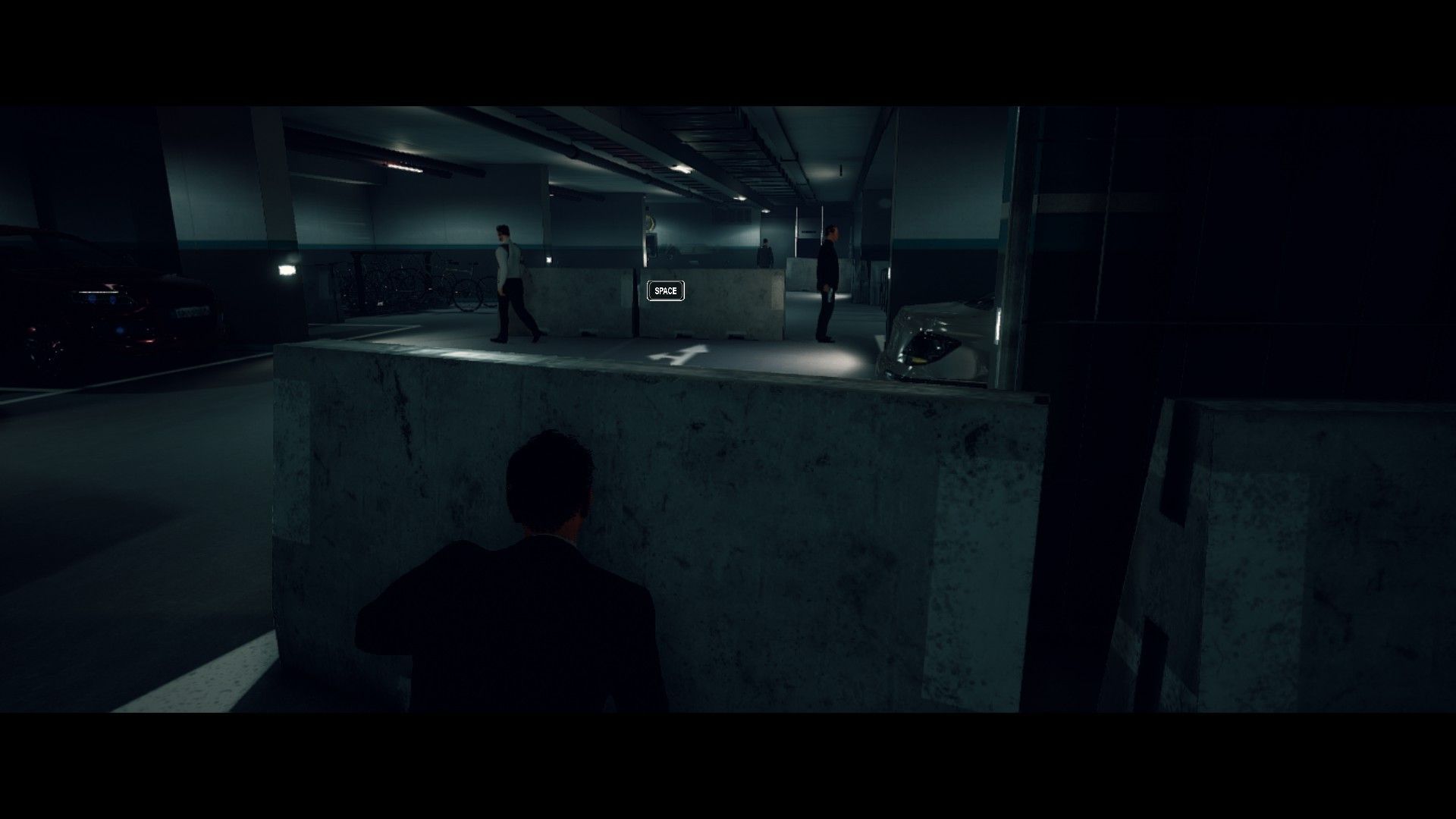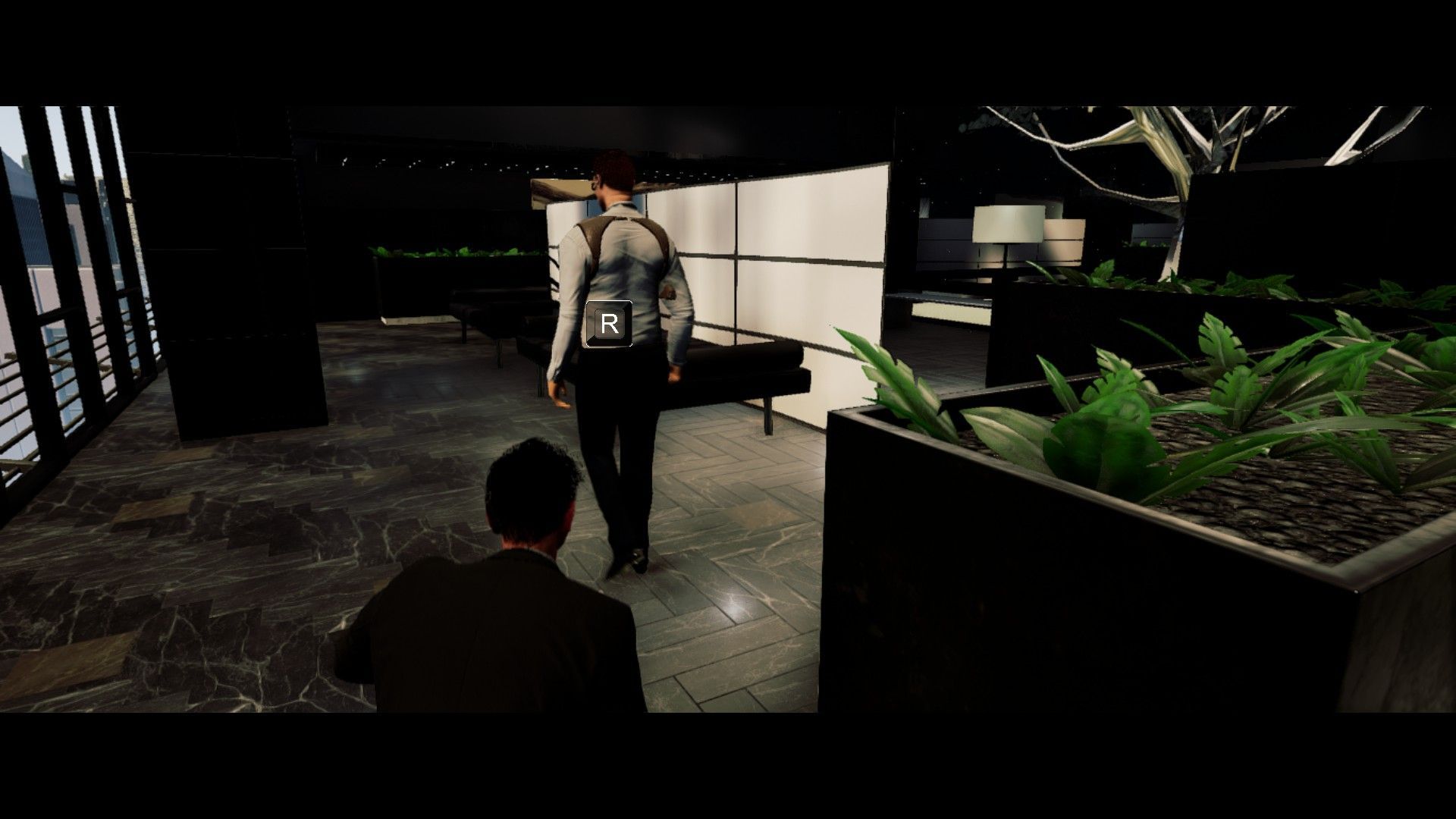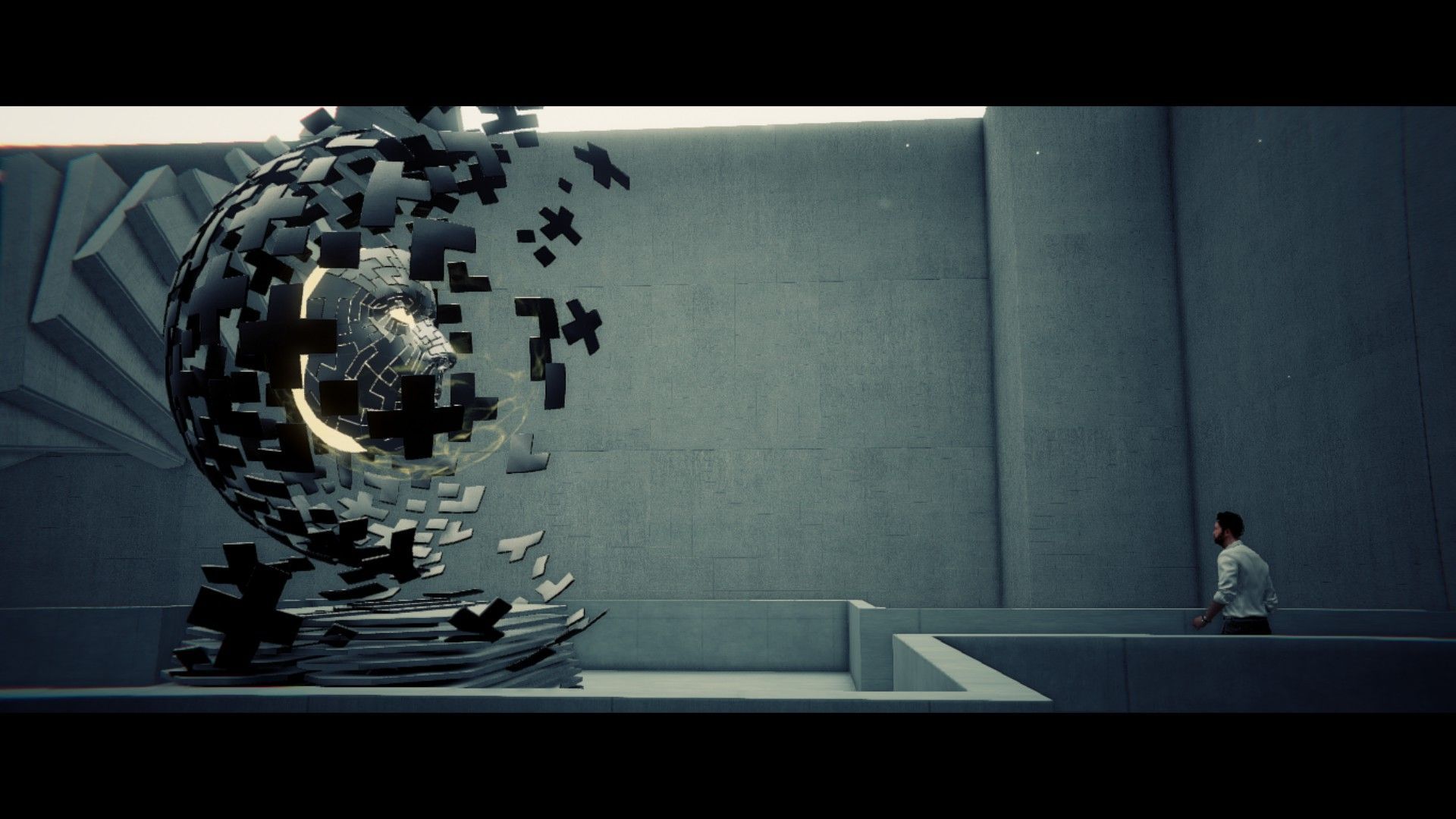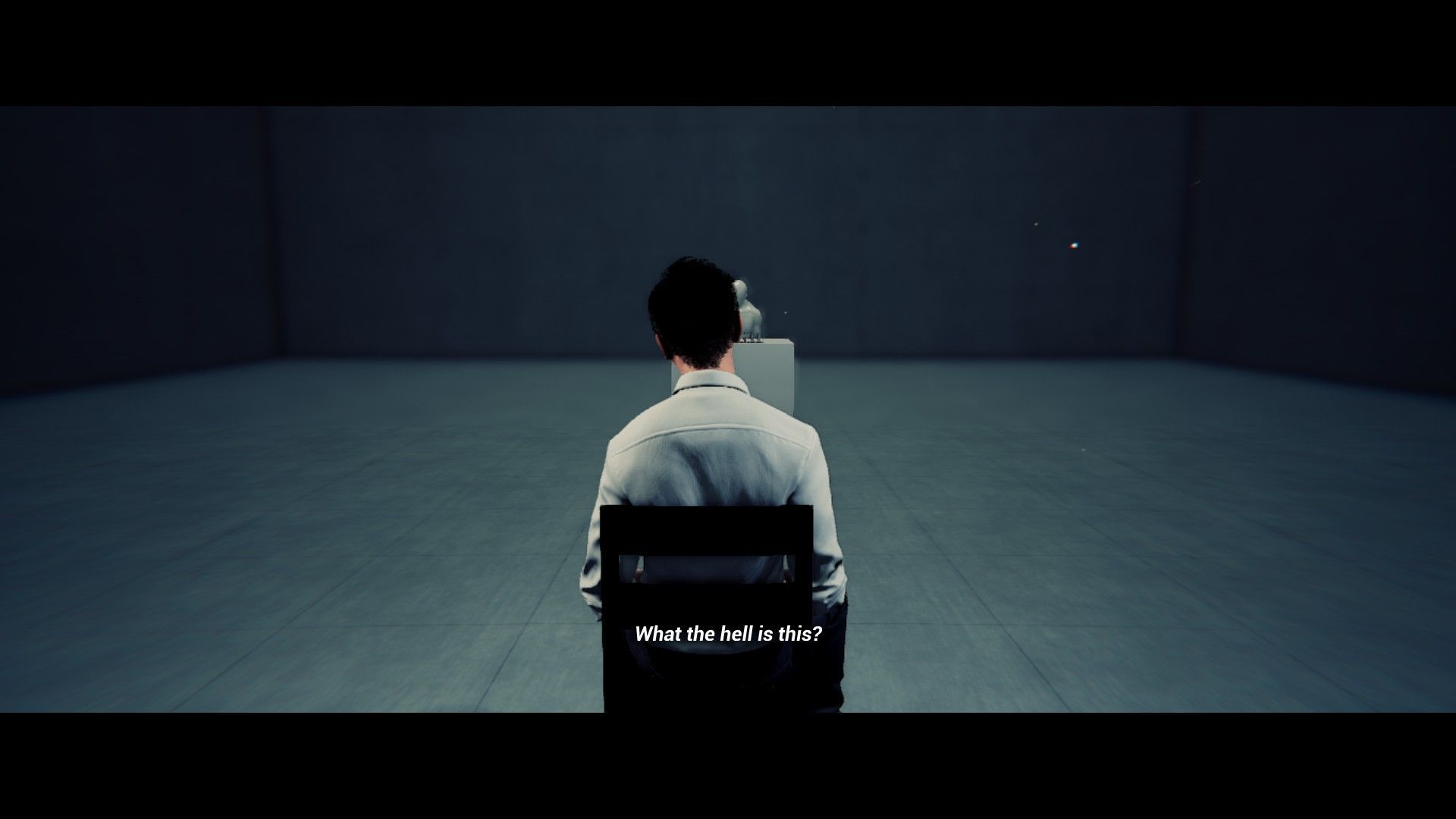Oh, Past Cure, I really did want to like you. Aside from having what came across as an interesting premise for a psychological thriller, maybe it was just my natural desire to see promising new IPs and indie titles to succeed that drew me to it, especially when you have an eight-man studio working on the game, giving me hope that we might have another Hellblade scenario here where the little guy proves that it can can deliver "triple-A" entertainment just as well, a real underdog story. Deep down, I knew there was an obvious chance it could backfire, that things wouldn't turn out that way. But I did not expect to be disappointed this hard. I hoped for a miracle cure but would have settled for a placebo, yet instead what I got was closer to syrup of ipecac.
There were a few notable warning signs that should have tipped me off, though. One was the fact that the PC version isn't exactly optimized that well, so despite having a new machine less than two months old, I had to knock the graphics setting down to Medium to get any decent gameplay (on a related note, sorry about any screenshot quality). The second sign was that despite trying to play with a controller at first, the game kept displaying only keyboard and mouse prompts. Then there was the use of cinematic letterbox during gameplay, which was an annoyance, but not a dealbreaker. But then the game opened with, of a all things, a wave-based shooter where monstrous porcelain figures entered glowing doors as I had to shoot at them, and if even one got within a certain radius of the player character, it was instant death. Not a hit, mind you, they just get close and then our hero apparently just gives up and stops shooting despite still being at point blank range. Not exactly the best first impression, to say the least.
The setup is that you play as Ian, an elite soldier who, after being captured three years ago, suddenly reappears with no memory of what happened and signs that the was experimented on, dependent on mysterious blue pills called "The Blues" to keep his sanity in check, still fighting off nightmares with every sleep. One day, however, Ian's brother Marcus comes across a tip that might lead them to the people behind all of this, so an armed Ian sets out to try and discover what happened, naturally getting dragged into something even more mysterious as things progress, going into bizarre territory.
The opening moments get you used to Ian's world via a series of tutorials. First there's the aforementioned wave-based shooter in a haunted house for gun mechanics, then you go around Ian's house learning of other combat techniques and how you take his Blues, then it's back to a modular dream world where you learn of Ian's various powers via way of a few puzzles. It's your standard set of tutorials that get you used the game, all of which would be perfectly fine...if all of these tutorials didn't make up the entire first three chapters of a seven-chapter game. To put it bluntly, length isn't exactly one of Past Cure's strong suits, and it doesn't make the most of its time. You can beat it in about five hours or so, with the only obstacles being the aforementioned one-hit kill enemies or gunfire that can rip through your health bar before you have a chance to heal, in some obvious fake difficulty.
But despite having some repetitive environments, the opening chapters do nicely set the mood, with unsetting and surreal imagery of shifting, marble-white walls, creepy porcelain figures with glowing red eyes, mazes that crumble as you walk through them, and bizarre disease-like growths on the walls, contrasted with Ian's regular life. It creates a perfect tone for a tense, psychological thriller such as this.
So naturally, it makes perfect sense that game decides to chuck all of this out and have the entire middle portion of the game be a generic third-person action game where you battle run-of-the-mill suit-wearing goons.
Yep, just as you're prepared for an insane descent into Ian's psyche, suddenly Past Cure has decided that your time would instead rather be spent sneaking and blasting your way around a parking garage and a hotel, using the exact same stealth, third-person shooter, and melee combat mechanics that you've seen in every other game. Because in trying to make an experience equal to that of triple-A titles, apparently the team decided to just throw every element possible in and see what sticks. And while the game never really botches any of these mechanics (except for maybe the combat, which feels pointless and distracting when at least two other enemies are still firing on you from a distance), it doesn't bring a single new wrinkle to the table.
Actually, there are two more mechanics worth noting. Due to Ian's medication giving him a side effect of super powers, he can either astral project out of his body in order to look around and interact with objects or slow down time for more precise movements and aiming, although both drain his sanity meter. Yes, bullet time and sanity meters, because apparently now we're emulating triple-A titles from fifteen years ago. Except Past Cure doesn't even get the sanity meter mechanic right. You would think this is setting up a series of dilemmas where Ian's abilities give you an edge in combat, but that using them too much may lead to hallucinations, the porcelain enemies showing up in the real world, something like that. But nope, use it all you want, no consequences here. And while you can take Blues to fully fill up the meter, it automatically refills to a third regardless, so you can even use it over and over and over, without challenge.
Even then, the game never provides any unique opportunities for these powers. Bullet time is used exactly how you would expect to use it, maybe also eluding a few porcelain monsters with it, and aside from a few scripted events and an extremely small amount of puzzles outside of the tutorial, you'll only ever end up using astral projection to disable security cameras if you choose to take the stealth route. Of course, there's a mandatory stealth section later, so you will have to take that route at least once, if only to balance out the mandatory combat route. Yes, your gameplay choice only gets to extend so far, go figure.
If none of this is sounding particularly exciting at all, well, that's Past Cure's cardinal sin in a nutshell. It's just so. Frigging. Dull. The aforementioned middle portion is the worst of it, with horribly repetitive and uninspired environments devoid of any charm, where one to two hours of gameplay contains about five minutes of actual plot development and you don't even get the likes of collectibles to hunt for or unique chatter. No, you just go from room to room in a linear fashion, either slicing throats or firing bullets over and over, the monotony grating on you. But even after that, it still doesn't improve.
The next chapter suddenly throws you into a weak survival horror level where you have a complete lack of defense (because why not suddenly shift genres again) and have to do a ton of backtracking, which comes off as too little, too late, and then suddenly it's back to the real-world shooting gallery for the final chapter, under the misguided belief that the previous horror suddenly made the third-person combat suddenly seem captivating. It doesn't exactly help that Ian is one boring protagonist, despite his initial setup. The guy reacts to eyeless corpses, a sudden lack of oxygen and the discoveries of huge weapon caches the same way one normally reacts to a cheeseburger they ordered still having pickles on it despite one's specifications. Needless to say, the voice acting will not be winning any awards here.
I'd like to say that the story ends up being the saving grace, but while it does offer up a few interesting ideas at times, the sad truth is that it felt like none of the plot points ever got resolved by the end. Mysterious strangers get confronted with no reveal of who they really are, questions of trust are brought up and immediately dropped, familiar locations are visited but never elaborated on, and more. If anything, the game ends on a blatant sequel hook, and the developers have said that this won't be the last we see of the Past Cure universe. Me, I'd argue that you should actually develop a proper story and foundation for one game before you even think of a follow-up, let alone a whole universe.
Closing Comments:
Phantom 8 Studio shouldn't be discouraged from future attempts at delivering a cinematic experience of a game on par with triple-A output, because they still have some neat ideas and directions to take. But there's no getting around the fact that Past Cure is a massive flop right out of the gate. Bland combat, bland environments, bland performances, a plot that doesn't go anywhere and an attempt to master multiple genres ends up creating a juggling act that drops all of the balls. Sadly, it appears the only medicine appropriate for this game is a full dose of strychnine.


